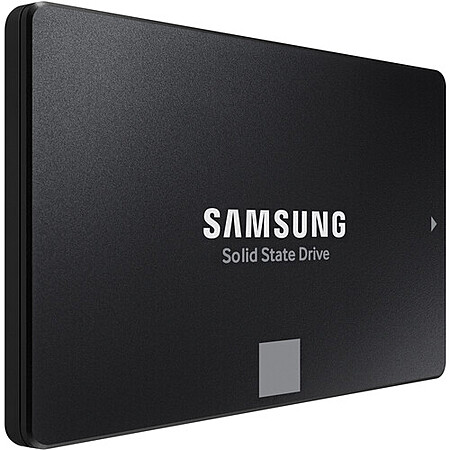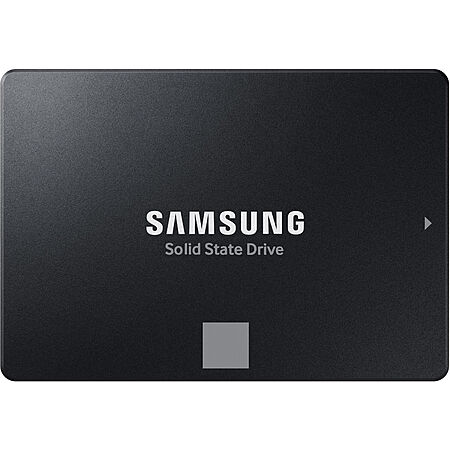expiredmendelsphotography posted Aug 11, 2025 09:41 AM
Item 1 of 2
Item 1 of 2
expiredmendelsphotography posted Aug 11, 2025 09:41 AM
Samsung 4TB 870 EVO SATA III 2.5" Internal SSD $239.99 @B&H
$240
$345
30% offB&H Photo Video
Visit B&H Photo VideoGood Deal
Bad Deal
Save
Share




Leave a Comment
19 Comments
Sign up for a Slickdeals account to remove this ad.
Our community has rated this post as helpful. If you agree, why not thank mvpcrossxover
Never mind. ...just add to cart for for lower price.
Our community has rated this post as helpful. If you agree, why not thank riffdex
My favorite feature of 2.5" SATA drives is that they are like removable data cartridges using IcyDock front bay ports.
No way I'd pay $230 for a SATA 4 TB. Not even at $100 because of the limited number of SATA ports on the motherboard. I need SATA ports for the 20TB drives.
Sign up for a Slickdeals account to remove this ad.
My favorite feature of 2.5" SATA drives is that they are like removable data cartridges using IcyDock front bay ports.
My favorite feature of 2.5" SATA drives is that they are like removable data cartridges using IcyDock front bay ports.
And Crucial killing the MX500 is further evidence of corporations insulting our intelligence. They prefer product tiering at the highest profit margins, handicapping NVMe until customers are dumb enough to pay an irrational premium for properly cached drives.
And Crucial killing the MX500 is further evidence of corporations insulting our intelligence. They prefer product tiering at the highest profit margins, handicapping NVMe until customers are dumb enough to pay an irrational premium for properly cached drives.
BTW, the presence of DRAM itself has little to do with sustained write performance. That's mostly impacted by the pSLC cache implementation and underlying type of NAND. I wish Crucial had stuck to the limited hybrid pSLC cache setup they used in the MX500 line. Most of their newer NVMe drives max out the size of the dynamic portion. That means that once the cache is full, the drive has to enter a folding state, and that tanks performance even more than direct-to-TLC/QLC. The sustained write performance of the T500 (which has DRAM) is an embarrassment.
Sign up for a Slickdeals account to remove this ad.
Leave a Comment